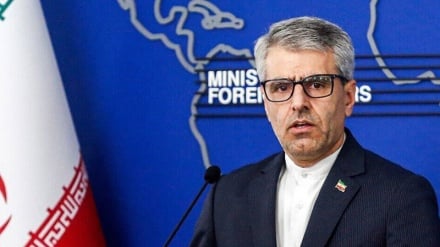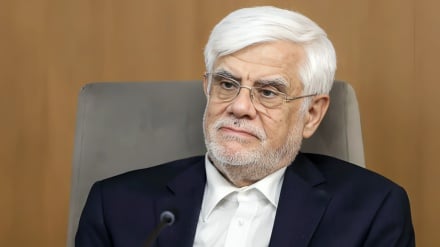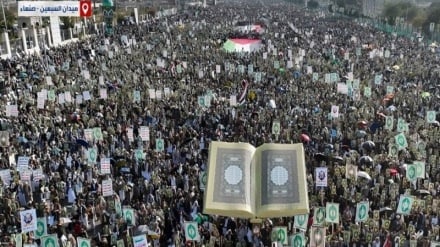How the UAE is destroying Yemen
The United Arab Emirates is trying to punch above its weight, and as a loyal servant of the US, is killing fellow Muslims and fellow Arabs in Yemen, in order to pave the way for the domination of the illegal Zionist entity, while having totally betrayed the Palestinian cause.
Now we have an investigative article for Middle East Eye by journalist Jonathan Fenton-Harvey titled: “How the UAE is destroying Yemen”.
Painting itself as a force for 'stability,' Abu Dhabi is using the country to propel its own regional ambitions, regardless of the human costs.
Saudi Arabia often takes the most criticism for Yemen's crisis, in light of its devastating bombing campaign. But the United Arab Emirates is attracting increasing scrutiny for actions that are tantamount to war crimes in the country.
Since the Saudi-led coalition launched its war in Yemen in March 2015, the UAE has been a key player. Yet, while Riyadh's goal has been to restore the fugitive Abd Rabbuh Mansour Hadi as president and crush the popular Ansarallah Movement, Abu Dhabi has focused more on the south, training security forces to secure its own geopolitical ambitions.
The UAE's long-term goals have become increasingly clear: to divide Yemen and create a friendly southern state, which would secure trade routes through the port of Aden to the rest of the world; to exploit Yemen’s natural resources; and to empower itself as a regional hegemon.
To justify its presence in Yemen, the Emirati regime is fixated on presenting itself as a force for stability. It often highlights charitable donations of so-called humanitarian aid to the country, while denying reports of its role in unlawful detention practices.
Despite this supposedly benevolent guise, evidence shows the UAE is not a force for good in Yemen. Human rights groups have cited torture and other abuses within UAE-backed prisons in southern Yemen, and the Associated Press last month reported on the use of sexual assault "to brutalise and break inmates". Amnesty International has also chronicled the practice of forced disappearance.
For the UAE, this is a means of crushing opposition in the south; but to international observers it confirms that the Emiratis' regional ambitions are being prioritised over humanitarian considerations.
The UAE's supposedly "stabilising" policies have also significantly increased Yemen's internal divide. Abu Dhabi's backing of southern secessionists and other military proxies has inflamed tensions in an already fragmented country. In January, the southern militias it backs clashed with Hadi’s forces in Aden.
The UAE's support for southern independence has failed to create any kind of unity, as Abu Dhabi has backed different groups, such as the Hadhrami Elite Forces, which want an independent Hadhramaut rather than a unified southern Yemen and have committed abuses such as arbitrary detentions.
The UAE's rift with Saudi Arabia has also been problematic. Riyadh has supported Islah, Yemen's Muslim Brotherhood branch, as a stable ally on the ground. But the UAE which opposes the Brotherhood, instead backing militants who maintain non-hostile relations with al-Qaeda in the Arabian Peninsula (AQAP) - which it is supposed to be fighting - to counteract Islah. As, researcher Helen Lackner notes in her book “Yemen in Crisis”, the UAE is in a proxy war with Saudi Arabia in Yemen.
While some observers argue that southern secession is a preferable option, the UAE's strategy involves far too large a human cost - and any UAE-friendly regime would only benefit the Emiratis, rather than the people of Yemen. It is hypocritical for the UAE to criticise the Ansarallah for their alleged failure to move towards peace, while it is the chief culprit.
While fighting AQAP, the UAE can operate under the pretext of counterterrorism, which has helped it gain support from the United States. In addition, Britain continues to support the UAE logistically and through its complicity in the war.
This unconditional support from the West is on track to continue, unless there is a massive outcry from Yemenis themselves. The people currently being victimised by the UAE can raise their voices in protest, with a goal to pushing back against Abu Dhabi.
This has already succeeded to an extent. The UAE's growing influence over the Yemeni island of Socotra was partially curtailed in May, after civilians and officials complained that Abu Dhabi was exploiting and occupying the land.
At the same time, humanitarian organisations will continue to reveal the abuses at the hands of UAE-backed forces in the south. Ultimately, however, the power to rein in the UAE's ambitions rests on the shoulders of the international community. Only this can prevent the crisis from taking an even more dramatic turn for the worse.
Meanwhile, according to Jakob Reimann, the head and editor of the German-based website “JusticeNow”, in his article “Abu Dhabi’s Quest for an Eighth Emirate in Yemen”, the UAE is using South Yemen, with its strategically important location and infrastructure, as a stepping stone to become a regional energy superpower.
The capture by southern Yemeni separatists of the port city of Aden was just the latest twist in a brutal war that has killed more than 10,000 people since the start of a Saudi-led coalition’s relentless bombing campaign in Yemen in March 2015.
As the war grinds on, the United Arab Emirates has been increasingly breaking ranks with the Saudi coalition to pursue its own agenda.
While Riyadh has been reluctant to send ground forces to Yemen, the UAE has had large-scale ground troops there for quite some time. The Emiratis played a key role in recapturing the port city of Aden in July 2015. Abu Dhabi is responsible for training tens of thousands of Yemeni troops in the south and importing hundreds of highly skilled mercenaries from South America to fight on its behalf.
The UAE is operating a network of torture prisons in southern Yemen, where thousands of terror suspects are “disappearing” and where, in the strict division of labour, the “UAE tortures and US interrogates”. The UAE has established a parallel security structure in southern Yemen, whose local troops solely answer to Abu Dhabi.
The UAE’s Yemen presence should be viewed from a meta-perspective. By controlling strategically important trade hubs, the Emiratis are pursuing the establishment of trans-regional structures in the Arabian Peninsula and beyond in order to further expand their fossil-fuel trade to Europe and North America. To that end, Abu Dhabi is forcing its way into the region's energy and security infrastructure at a rapid pace: from Eritrea and Somaliland to Cyprus and Libya's Benghazi.
In Yemen, these ambitions have manifested in several strategically important ways: the recapture of Perim Island in the Bab-el-Mandeb Strait, the transformation of the island of Socotra in the Gulf of Aden into the UAE’s very own tourism and military colony, and successful efforts to gain control over a network of ports in Yemen.
Emirati troops, however, are mostly regarded as occupiers. Mansour Hadi has charged them with behaving more like an occupying power than a force of liberation.
Since the beginning of the war, the call for a division into North and South Yemen has been getting louder; however, all major parties to the conflict, at least officially, have stressed their commitment to the territorial integrity of Yemen. But for over a year now, secessionist forces have been gaining momentum domestically, with strong support from the UAE.
The UAE is ambitiously pursuing the project of a divided Yemen. The rift became apparent in all its absurdity when the Emiratis denied Hadi entry to Aden, his hometown - a memorable symbol of the balance of power in the country.
After investing billions in infrastructure and arming separatist militias in southern Yemen, the UAE is now harvesting its secessionist crops. The Emiratis have in mind a vassal province – a kind of eighth emirate of South Yemen – which, with its strategically important geography and provision of energy infrastructure, could enable the rise of the UAE as a global energy superpower.
Abu Dhabi's key tool to achieve that goal has been the Southern Transitional Council (STC) formed in May 2017. After Hadi ignored the STC’s ultimatum for the dismissal of Prime Minister Ahmed bin Daghr, whom it accused of “rampant corruption”, fierce fighting erupted in Aden last month, killing more than 36 people and wounding hundreds more. The STC ultimately took control of the de facto capital, Aden.
Flags of the former South Yemen were raised at the entrance gate of the presidential palace. Daghr spoke of a “coup” while a high-ranking STC official announced that the “uprising” would continue until the Hadi regime was “toppled”.
The STC is backed by the UAE through arms deliveries, financial support and military advice. The council’s leader, the former governor of Aden, Aidarus az-Zoubaidi, is known to have been under the UAE’s patronage for years.
The strategic military component of this collaboration manifested in the conquest of the military base of Hadi's presidential guard in January this year. Only after Emirati fighter jets bombarded the base and weakened troops loyal to Hadi was the facility able to be seized by STC forces on the ground. The UAE acts as the STC’s air force.
The most recent events illustrate once again that the UAE and Saudi Arabia are standing on hostile sides in this complex, multi-layered war. While the Saudis stand firmly by Hadi's side, a senior Emirati security official openly calls for his overthrow.
In August 2017, emails from two former high-ranking US officials leaked to Middle East Eye showed that Saudi Heir Apparent Mohamed bin Salman (MBS) “wants out” of the costly war in Yemen, which he had started more than two years earlier. Apparently realising that Hadi’s reinstatement is an unreachable goal, Riyadh has shifted its attention to the very limited task of securing its southern border against the Ansarallah.
Abu Dhabi, in turn, is not really interested in the fight against the Ansarallah, and only wants to control some strategic points, such as the Hodeidah sea port. From the outset, the fight against them was the pretext to set a military foot in southern Yemen.
The UAE’s sole interest is controlling the 2,000 kilometres of Yemeni coast – a central pillar of Abu Dhabi's plans to become a regional energy superpower, which it is relentlessly pursuing instead of negotiating the co-use of Yemeni ports and investments in the country’s energy infrastructure.
The resistance put by the Ansarallah, however, especially the stalling of the UAE-Saudi ground offensive against the port city of Hodeidah, may well backfire on Abu Dhabi’s ambitions and may result in instability and economic collapse back home, given the military ingenuity of the Yemeni defenders, such as the recent stepping up of long range drone and ballistic missile attacks.
AS/ME


